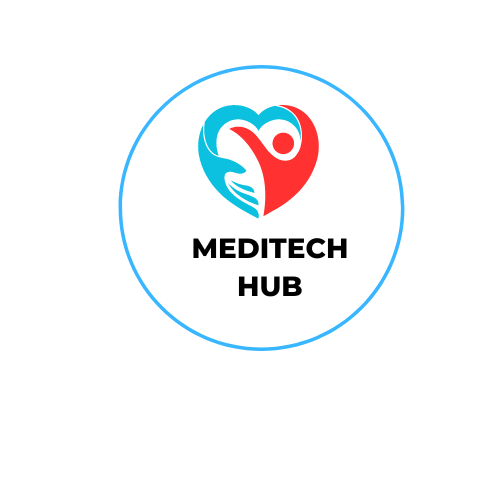As technology advances, the landscape of health and wellness is rapidly evolving. Modern fitness technology now goes beyond physical activity to include mental health, nutrition, and overall well-being. This guide explores how innovations like wearable health ecosystems, mental health apps, and personalized nutrition plans are fostering a holistic approach to health. Discover how seamlessly integrated data and advanced health monitoring tools are transforming the way we manage our health and wellness.
Holistic Health Solutions
The concept of holistic health encompasses more than just physical fitness; it includes mental well-being, proper nutrition, and a balanced lifestyle. Fitness technology plays a crucial role in achieving this comprehensive approach.
Integration of Fitness Technology with Mental Health.

Mental Health Monitoring.
With increasing awareness of mental health’s importance, technology has provided tools to monitor and manage it effectively. Wearable devices and apps track indicators such as stress levels, sleep patterns, and emotional well-being. For instance, smartwatches can monitor heart rate variability, which can indicate stress. Apps like Headspace and Calm offer guided meditations and breathing exercises, helping users manage stress and anxiety, promoting overall mental wellness.
Nutritional Guidance and Meal Planning
Proper nutrition is a cornerstone of holistic health, and technology has made it easier to manage. Numerous apps offer personalized nutrition plans, catering to individual dietary needs and fitness goals. MyFitnessPal and similar platforms allow users to log their meals, track nutrient intake, and monitor calorie consumption. This personalized approach helps users make informed dietary choices, supporting their overall health and fitness objectives.

Personalized Nutrition Plans
Personalized nutrition plans consider a user’s dietary preferences, fitness goals, and health conditions. Advanced apps use algorithms to suggest meals and snacks, ensuring balanced nutrition. This tailored approach makes it easier for users to adhere to a healthy diet, whether aiming to lose weight, build muscle, or manage a health condition, thus a more personalised plan.
Lifestyle Coaching
Lifestyle coaching has become increasingly popular, offering comprehensive guidance on physical fitness, nutrition, and mental health. Virtual wellness coaches provide personalized advice and support, helping users set and achieve their health goals. These coaches can offer tailored exercise routines, dietary advice, and mental health strategies, thus a balanced and sustainable approach to wellness.
Wearable Health Ecosystems
Wearable health ecosystems consist of interconnected devices that provide a comprehensive view of an individual’s health. These ecosystems enable real-time health monitoring and data analysis, offering valuable insights into various aspects of well-being.
Integration of Wearables
Wearables, such as fitness trackers, smartwatches, and other health devices, are now integral to health management. These devices collect data on physical activity, heart rate, sleep quality, and more. The integration of these wearables allows users to access a unified health dashboard, providing a holistic view of their health metrics.
![]() Smart Watch infographic
Smart Watch infographic
Health Data Analytics
Health data analytics plays a vital role in interpreting the vast amount of data collected by wearables. This analysis helps identify patterns and trends, offering users insights into their health status. For example, data on sleep patterns can highlight areas for improvement, while activity data can motivate users to stay active.
Real-Time Monitoring and Alerts
Real-time health monitoring is one of the most significant advantages of wearable ecosystems. Devices can continuously track vital signs and health metrics, providing immediate feedback. For instance, smartwatches can detect irregular heartbeats or unusual activity levels and send alerts to the user or healthcare provider. This proactive approach can prevent serious health issues by enabling timely intervention.
Future of Wearable Health Ecosystems
The future of wearable health ecosystems looks promising, with advancements in technology paving the way for more sophisticated and integrated solutions.
Emerging Technologies
Emerging technologies like implantable devices, smart clothing, and advanced biometric sensors are set to revolutionize health monitoring. These innovations will offer deeper insights into an individual’s health, enabling more personalized and precise care. For example, smart clothing embedded with sensors can monitor body temperature, hydration levels, and even detect potential injuries.
 Eye biometric sensor
Eye biometric sensor
Data Privacy and Security
Wearable health ecosystems have become more integrated into our daily lives today. This has called for a robust data privacy and security.
Cybersecurity measures, such as encryption and secure data transmission protocols, to safeguard data from breaches have been put into consideration. This not only protects users’ personal health data but also gives them greater control over who can access their information.
Conclusion
The integration of fitness technology into holistic health solutions is transforming how we approach wellness. From mental health support and personalized nutrition plans to comprehensive wearable ecosystems, these innovations offer a seamless and user-friendly experience. As technology continues to evolve, the future of health and wellness looks increasingly interconnected and personalized. By embracing these advancements, individuals can take greater control of their health and well-being, leading to a more balanced and fulfilling life.


